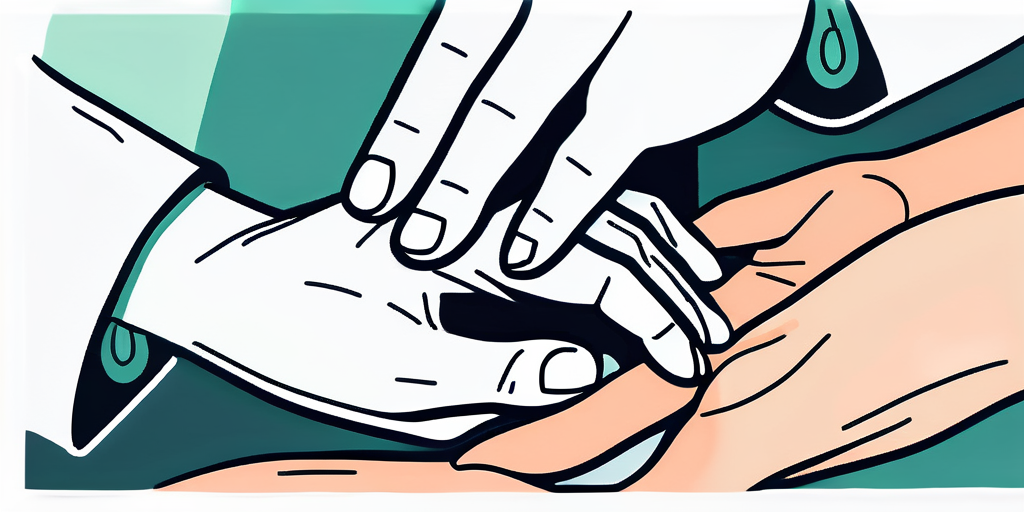Empathy plays a crucial role in fostering positive patient outcomes and establishing meaningful connections between healthcare professionals and those they serve. Understanding and embodying empathy is essential for healthcare practitioners to deliver the highest standard of care. By cultivating a deep sense of empathy, healthcare providers can not only enhance patient satisfaction and well-being but also nurture their own emotional resilience and professional growth.
Understanding Empathy in Healthcare
At its core, empathy is the ability to understand and share the feelings of another person. In the context of healthcare, empathy involves both recognizing and acknowledging the emotions of patients, as well as responding to these emotions in a compassionate and supportive way.
Empathy in healthcare is a vital component of patient-centered care, where healthcare providers prioritize not only the physical well-being of their patients but also their emotional and mental well-being. It involves creating a safe and supportive environment where patients feel heard, understood, and cared for.
Defining Empathy in a Medical Context
Empathy in healthcare extends beyond sympathy or pity, as it requires healthcare professionals to genuinely step into the shoes of their patients. It involves not only recognizing their medical condition but also understanding the emotional impact it has on their lives.
Healthcare providers who practice empathy are able to foster stronger relationships with their patients, leading to improved patient satisfaction, better treatment adherence, and ultimately, positive health outcomes. By demonstrating empathy, healthcare professionals can address not only the physical symptoms of a condition but also the psychological and emotional toll it may take on an individual.
The Psychological Aspects of Empathy
Empathy is deeply rooted in psychology, as it involves being attuned to the emotional experiences of others. By actively listening and observing nonverbal cues, healthcare professionals can gain insight into their patients’ anxiety, fear, or frustration. This emotional connection creates a foundation of trust and collaboration.
Furthermore, empathy in healthcare is not only beneficial for patients but also for healthcare providers themselves. By understanding and connecting with their patients on a deeper level, healthcare professionals can experience greater job satisfaction and a sense of fulfillment in their roles. This emotional intelligence and connection can also help prevent burnout and improve overall well-being in the healthcare setting.
The Role of Empathy in Patient Care
When healthcare professionals approach patient care with empathy, it has a profound impact on multiple levels.

Empathy is a fundamental aspect of patient care that goes beyond just the medical treatment provided. It involves understanding and sharing the feelings of patients, acknowledging their fears, concerns, and hopes. By practicing empathy, healthcare providers can create a supportive and compassionate environment that promotes healing and overall well-being.
Empathy and Patient Satisfaction
Empathetic care fosters patient satisfaction by making individuals feel heard and understood. When patients feel that their healthcare provider genuinely empathizes with their concerns, it enhances their overall experience and trust in the healthcare system.
Furthermore, empathy can lead to improved communication between patients and healthcare professionals. When patients feel valued and respected, they are more likely to openly discuss their symptoms, concerns, and treatment preferences. This open dialogue can result in more accurate diagnoses and tailored treatment plans that address the individual needs of each patient.
Empathy in Diagnosis and Treatment
Empathy is not limited to the bedside manner but also extends to the diagnosis and treatment process. By understanding patients’ unique perspectives, healthcare professionals can tailor treatment plans and actively involve patients in shared decision-making. This patient-centered approach improves treatment adherence and patient outcomes.
Moreover, empathy plays a crucial role in building trust between patients and healthcare providers. When patients feel understood and supported, they are more likely to follow through with treatment recommendations, attend follow-up appointments, and engage in preventive care measures. This trust is essential for establishing long-term relationships that promote continuity of care and better health outcomes.
Empathy in Healthcare Professional’s Well-being
While empathy is primarily focused on patient care, it also greatly impacts the emotional well-being and job satisfaction of healthcare professionals.

Empathy plays a crucial role in the daily interactions of healthcare professionals, influencing not only the quality of care they provide but also their own mental and emotional health. By understanding and sharing the feelings of their patients, healthcare workers can create a supportive and compassionate environment that fosters healing and trust.
The Impact of Empathy on Healthcare Workers
Although the demands of healthcare can be challenging, the ability to connect with patients on an empathetic level can help healthcare professionals find purpose and fulfillment in their work. It provides a sense of gratification and reinforces their commitment to making a difference in the lives of others.
Furthermore, empathy has been shown to reduce stress and burnout among healthcare professionals. By acknowledging and validating the emotions of patients, healthcare workers can also experience a sense of connection and shared humanity, which can serve as a source of resilience in the face of difficult situations.
Balancing Empathy and Professional Boundaries
While empathy is essential, healthcare professionals need to strike a balance between empathy and maintaining professional boundaries. It is crucial to be empathetic without compromising objectivity and the ability to make tough decisions for the well-being of patients.
Establishing clear boundaries can help prevent emotional fatigue and ensure that healthcare professionals can continue to provide high-quality care without being overwhelmed by the emotional burden of their work. By setting limits on emotional involvement, healthcare workers can safeguard their own well-being while still delivering compassionate and effective care to those in need.
Cultivating Empathy in Healthcare Settings
Cultivating empathy within healthcare settings requires intentional efforts and a supportive environment. Empathy is a vital component of patient-centered care, as it allows healthcare professionals to understand and connect with their patients on a deeper level, leading to improved health outcomes and patient satisfaction.
One key aspect of fostering empathy in healthcare is creating opportunities for healthcare providers to engage in reflective practices. Reflective practices, such as journaling or group discussions, allow professionals to process their emotions and experiences, leading to increased self-awareness and empathy towards others.
Strategies for Enhancing Empathy in Healthcare
Healthcare organizations can provide training programs and workshops that focus on emotional intelligence, communication skills, and self-awareness. These initiatives help healthcare professionals develop a deeper understanding of the perspectives of their patients and foster empathetic interactions. Additionally, incorporating patient stories and perspectives into training sessions can help healthcare providers gain insight into the lived experiences of those they care for.
The Role of Education and Training in Fostering Empathy
Integrating empathy-related content into medical education and training curricula is crucial for ensuring that healthcare professionals develop and maintain their empathetic abilities throughout their careers. By emphasizing the importance of empathy from the early stages of training, healthcare providers can help nurture a culture of empathy within the healthcare system. Furthermore, ongoing professional development opportunities, such as peer mentoring or case-based discussions, can support healthcare professionals in continuously honing their empathetic skills.
The Future of Empathy in Healthcare
As healthcare continues to evolve, the role of empathy remains crucial in delivering high-quality, patient-centered care.

The Role of Technology in Empathetic Healthcare
While technology has undeniably transformed healthcare, it is essential to explore ways in which it can be leveraged to complement and enhance empathetic care. Telemedicine, digital communication tools, and artificial intelligence can all be harnessed to foster empathetic connections between healthcare professionals and patients.
Empathy as a Key Component in Healthcare Policies
Recognizing the significance of empathy in healthcare, policymakers can prioritize the integration of empathy-related initiatives into healthcare policies and regulations. By doing so, they can ensure that empathy remains central to the practice of healthcare and that it receives adequate recognition and support.
In conclusion, empathy is a cornerstone of healthcare practice. It not only improves patient satisfaction and outcomes but also supports the emotional well-being and professional growth of healthcare professionals. By cultivating empathy and integrating it into healthcare settings and policies, we can create a healthcare system that truly values and prioritizes the holistic needs of patients.
As you strive to integrate empathy into your healthcare practice, let Wellth be your partner in growth. Our free newsletter is designed specifically for practitioners and clinic owners, aiming to expand your reach beyond word-of-mouth. In just 2 minutes a day, you’ll receive actionable tips to attract more clients and enhance your clinic’s services. Plus, you’ll gain access to our exclusive resources, including promotional materials and patient forms, all while connecting with a vibrant community of health professionals. Subscribe FREE today and take the first step towards a thriving practice that fully embraces the power of empathy.

Pingback: What is sentiment analysis and why is it important in healthcare – Wellth Daily